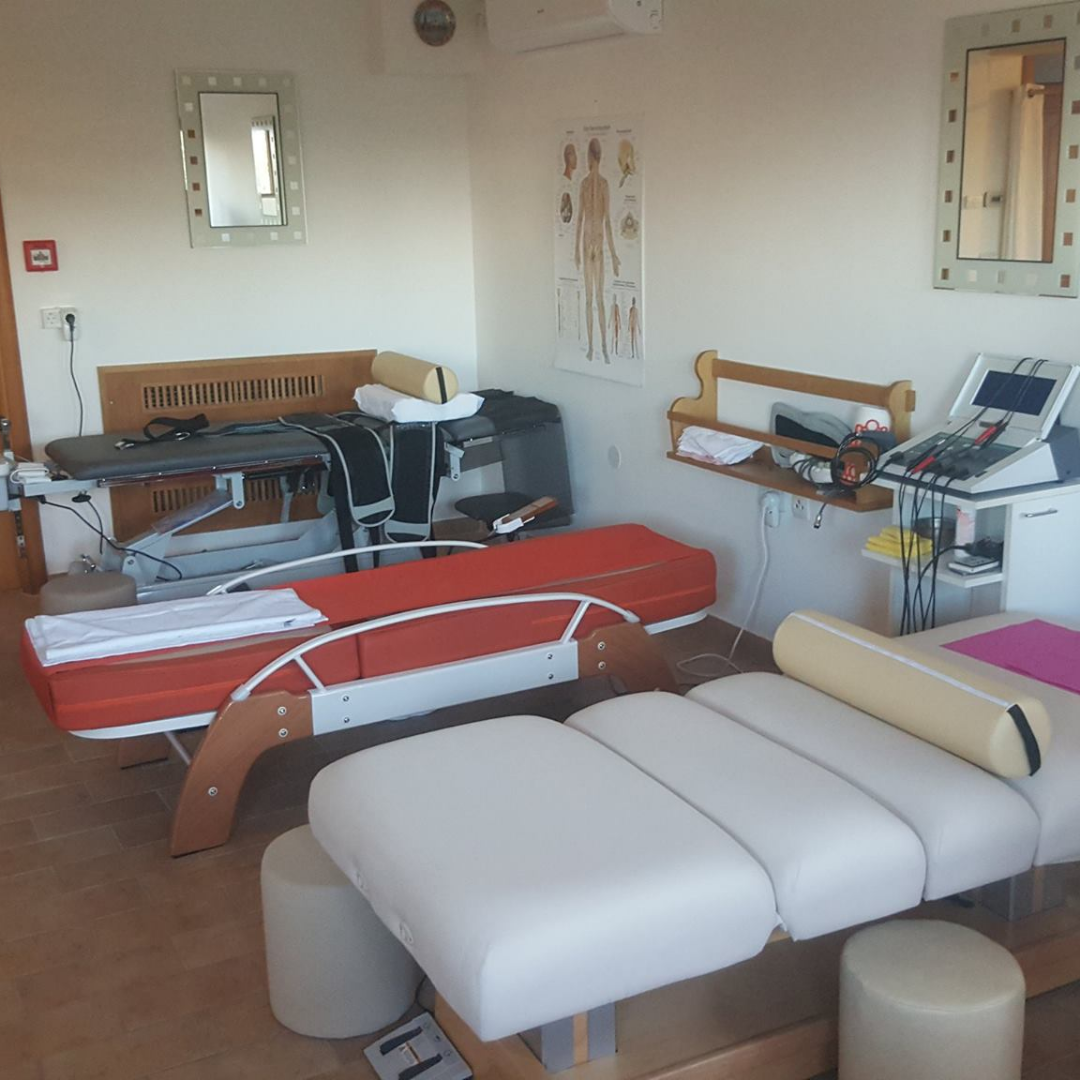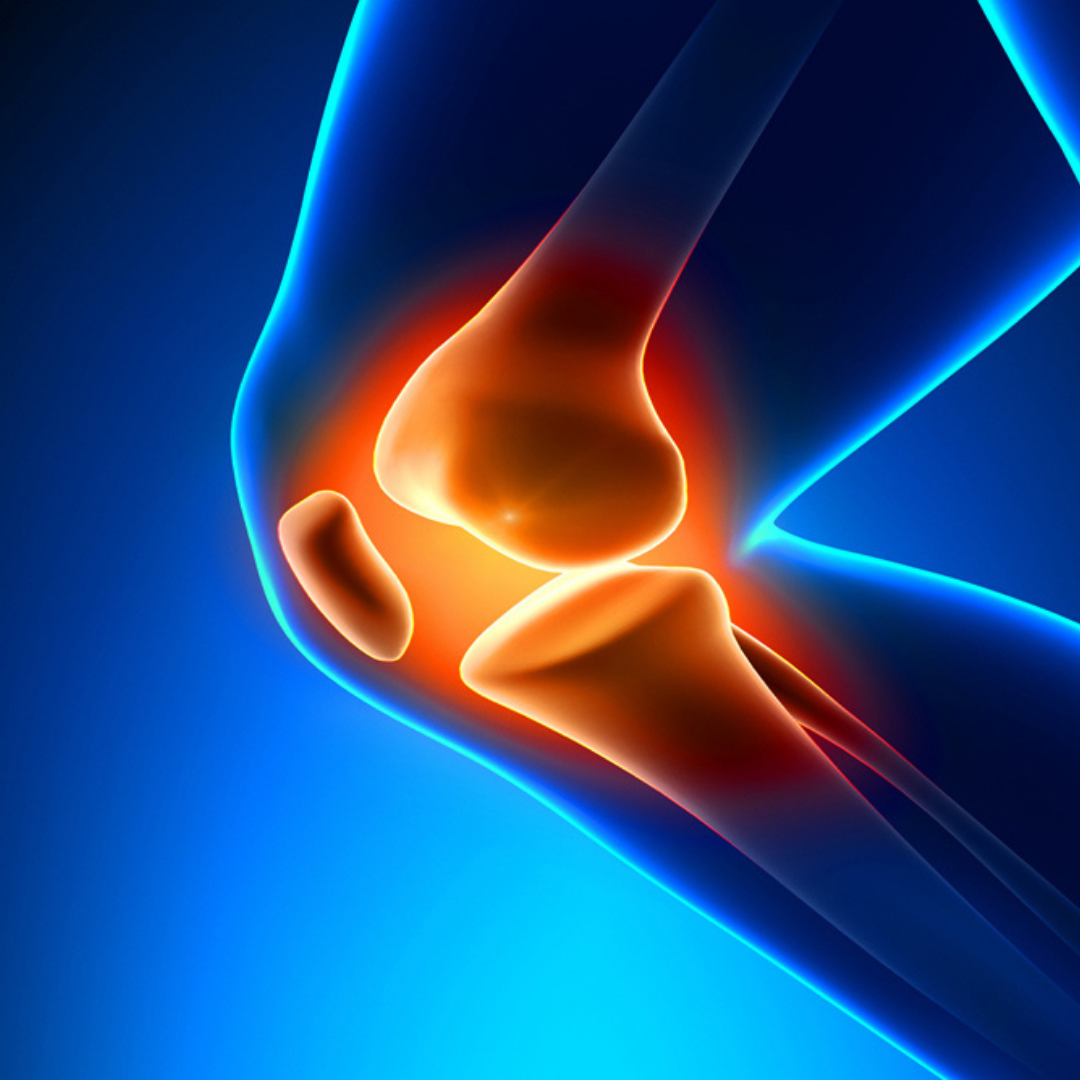
emBIO Medical Centre
Best IVF Hospital emBIO Medical Centre in Athens, Greece
emBIO Medical Centre Profile Overview
Welcome to emBIO, Athens leading independent fertility and gynaecology specialists.
At emBIO IVF, we believe the best fertility experience combines compassionate, patient-centered care and leading-edge reproductive technologies.
emBIO Medical Centre in Athens, Greece, was founded in 1997 and since then has offered couples a full range of specialist infertility investigations and treatments. Their state of the art clinic and laboratories were designed to provide you with a comprehensive and flexible service of the highest standard using the latest assisted conception techniques.
Both the medical and scientific staff of this IVF clinic in Athens, led by Dr Thanos Paraschos, provides innovative solutions for reproductive problems in a caring and supportive environment. Based on their experience of having treated thousands of patients from all over the world, emBIO recognise and strive to meet the individual needs of each couple.
Internationally renowned Greek infertility and IVF specialist
Dr Thanos Paraschos is an internationally known obstetrician and gynaecologist, who specialises in infertility and IVF treatment. He gained experience over 8 years in various University and large General Hospitals in England, such as Hammersmith Hospital with Lord Professor Robert Winston, who is a world-leading expert in reproductive biology. Lord Winston is also well-known for presenting many BBC television series, such as Child Of Our Time and The Human Body.
Dr. Thanos Paraschos is the medical director of the Embio IVF unit in Athens, Greece, which he founded in 1996.
IVF success statistics
emBIO boasts one of the highest success rates in Europe. The success rate in 2006 and 2007 in women undergoing IVF with egg donation was 58%.
Fertility treatments available at emBIO in Greece
The emBIO Medical Centre offers a most comprehensive range of gynaecological and infertility treatments.
As you would expect, the emBIO clinic provides traditional and standard treatments such as:
-
Ovarian stimulation
-
Intra-uterine insemination
-
Infertility treatment for male and female partners
-
In vitro fertilisation
-
Egg donation
-
Cryopreservation
State of the art facilities
emBIO's new headquarters offers fertility patients a comprehensive treatment approach that combines advanced fertility services with scientifically valid complementary modalities. The facility features state-of-the-art surgical and medical facilities, private consultation areas, and inviting open spaces.
Can you Imagine Getting Fertile in Greece?
Take a holiday in Greece and return home carrying your baby!
What you always suspected and couldn't prove is actually true. Recent scientific research has shown that women undergoing IVF treatment for a second time have more than double chances to get pregnant when they also take a relaxation program. So how about further increasing your chances, combining a happy vacation in Greece with a 10-day mind/body program in one of Europe's top-ranking fertilization centers?
So, close your eyes, take a deep breath and...
Swim under the ancient Temple of Poseidon at Sounio... Be inspired by the prehistoric fertility statues in the Cycladic Art Museum... Let the Parthenon and the New Acropolis Museum take your breath away, as your personal guide shows you around Athens!
And let the experienced specialists at emBIO take care of you with the latest and safest fertility methods. You can really relax, you know! The success rates in aided fertility are exceptionally high at emBIO, one of the largest and most reliable fertility centers in Europe.
Please Click here to request more information from emBio Medical Center.
emBIO Medical Centre, Athens, Greece Profile Details
State of the Art Facilities
Embio IVF's new headquarters offers fertility patients a comprehensive treatment approach that combines advanced fertility services with scientifically valid complementary modalities.
The facility features state-of-the-art surgical and medical facilities, private consultation areas, and inviting open spaces.
Main IVF laboratory
-
All the equipment and software have been designed to comply with all existing and proposed regulatory requirements such as the recently introduced EU directive 2004/23/EC.
-
Compliance reports can be produced automatically in the format required by the local regulatory authority. Ergonomics and workflow improvement.
-
The operating theatre equipment provides a working environment that will assist the embryology staff to work efficiently and effectively in a pleasant environment where all controls are easily at hand and ergonomic design is a primary consideration.
Workstation
-
The option of remote air-handling module eliminates noise and vibration from the laboratory and ensures a quiet vibration free work environment.
-
Full IT integration for all equipment in all locations with barcode tracking of samples and consumables.
Image and data collection, storage and analysis software
-
All information is collected and centrally stored in a secure database for later analysis. Each embryo is tracked throughout the procedure providing a complete record of images, analysis, scoring and temperature plus media and disposables used at each stage of the procedure from gamete collection to embryo replacement. The process data from the laboratory is stored in such a way that all information on the couple's treatment journal is readily accessible and easy to locate.
-
All records can be copied to the central LIMS system, backed up on DVD and archived to meet regulatory requirements.
ICSI micromanipulators (Naraschighe-Nikon)
-
A state of the art digital microscope provides real time images viewed on a high resolution, flat panel monitor instead of through the microscope eye pieces. This, combined with ergonomic placement of all controls, ensures ease of use and maximum operator comfort.
-
All tools, processes, images and observations are recorded providing a complete in-vitro history of oocytes and embryos.
-
Laminar airflow maintains accurate temperature and environmental control, meeting all current regulatory requirements.
-
Microscope completely isolated from work surface and surroundings on a separate anti-vibration platform ensuring optimum conditions for ICSI procedures.
Incubators (17 incubators)
-
The incubators (Heraeus, Cook-mink, Galaxy) continue the level work surface at the same height as the other equipments in order to maximise safety for movement of material to and from the incubator.
-
Dedicated gas and power supply lines are standard with triple gas specification available.
-
Storage space is provided under the incubator for small gas bottles or other items.
Please Click here to request more information from emBio Medical Center.
emBIO Medical Centre Treatments Offered
Intra-Cytoplasmic Sperm Injection (ICSI)
Fertilization failure in IVF is particularly common where there are grossly abnormal semen parameters or where the number of active spermatozoa is insufficient. Gamete micromanipulation is the only way to overcome this problem and offer assistance to couples who previously had to rely on the use of donor sperm. The ICSI procedure entails the deposition of a single sperm into the main body of the egg (cytoplasm) thus bypassing the outer layers of the egg (zona pellucida). The whole procedure is performed in the lab by the embryologists using special equipment, for egg and sperm manipulation, under the control of high-powered microscopes.
This procedure is usually carried out in cases of severe male infertility (low number of active sperm or increased number of abnormal shape) and is also suggested in couples who have undergone multiple conventional IVF cycles with low fertilization rate. Finally, retrieval of low number of oocytes, the existence of sperm with no acrosome unable to penetrate the oocyte and oocytes with thick zona pellucida represent further indications for the performance of this procedure.
Zona pellucida measurements
It has been proven that zona pellucida undergoes significant changes during oocyte and embryo growth. Studies have shown that the hardening of zona pellucida plays an important role at normal embryo cleavage. Even though techniques of assisted hatching already exist, methods of accurate determination of zona pellucida changes needs to be further developed. Spindle view will provide the examination of the structure of zona pellucida and as a result better comprehension of the changes that occur during hardening or destruction. Studies have shown that Spindle view can accurately determine the molecular structure and density of zona pellucida. This determination can occur before or after fertilization and gives valuable information about embryo cleavage.
HLA Typing
In addition to PGD for single gene disorders, we have the ability to perform human leukocyte antigen (HLA)-typing of embryos.There has been a growing interest in HLA- typing of embryos as it allows parents to conceive a child that is capable of providing histo-compatible stem cells in order to save the life of a sibling with a disease. The stem cells are obtained from umbilical cord blood at the time of birth and then transferred to the affected sibling. This approach has been used to cure children with a variety of forms of inherited anemia and also for children with leukemia.At our unit we continually strive to extend the services offered to our clients. We will be offering novel technologies in the near future. Information on these services will be sent to your PGD coordinator.
Karyomapping
A revolutionary genetic test for "perfect" babies
British scientists developed a revolutionary test that will allow future parents to test their embryos for almost all known genetic diseases. However, this important scientific accomplishment raises the fear of creating a world of "perfect babies".
Until today, existed only pre-implantation genetic diagnosis (PGD), a technique that was developed in 1989. PGD allows the diagnosis of only 2% of the 15000 known genetic diseases and it is time consuming since scientists have to trace the exact genetic mutation that a family carries and then develop a test for it. The new technique called karyomapping is based on the same procedure (it was developed by the same doctor) but it can detect at embryos all known genetic diseases only within a few weeks (the only exceptions are those that appear suddenly due to an accidental mutation). The new test costs about 1850euro but its cost is expected to be reduced as technology evolves.
Three-person IVF 'may prevent inherited disease'
Embryos containing DNA from a man and two women have been created by scientists. They say their research, published in the journal Nature, has the potential to help mothers with rare genetic disorders have healthy children. The aim is to prevent damaged DNA in mitochondria - the "batteries" which power the cell - from being passed on by the mother. IVF clinics are not currently permitted to carry out the procedure. Around one in 200 children is born each year with mutations in the mitochondrial DNA. In most cases this causes only mild disease, sometimes without symptoms. But around one in 6,500 children is born with mitochondrial disease, which can cause serious and often fatal conditions, including muscular weakness, blindness and heart failure.
- The scientists have developed a technique which would potentially allow them to replace defective mitochondria during IVF.
- The research, funded by the Muscular Dystrophy Campaign, Medical Research Council and the Wellcome Trust, used newly fertilised eggs left over from IVF treatment.
- The nuclei from the father's sperm and the mother's egg, which contain the parents' DNA, were removed, leaving behind the faulty mitochondria.
- The nuclei were put into another egg from which the nucleus had been removed, but which retained its mitochondria. This new embryo contained the genes from both parents plus a tiny amount of mitochondrial DNA from the donor egg.
- "What we've done is like changing the battery on a laptop," said lead author Professor Doug Turnbull.
- "The energy supply now works properly, but none of the information on the hard drive has been changed.
- "A child born using this method would have correctly functioning mitochondria, but in every other respect would get all their genetic information from their father and mother."
Legal hurdles
The Newcastle team created a total of 80 embryos. These were cultured for up to eight days in the laboratory under the terms of a licence granted by the Human Fertilisation and Embryology Authority (HFEA). The team is planning further studies to check the safety and efficiency of the procedure.
The law currently prevents the technique being used in fertility treatment. A licence to carry out the study was refused on two occasions before being granted five years ago.
Ethics expert, Dr Donald Bruce, former director of the Society, Religion and Technology Project of the Church of Scotland, said the research raised important ethical issues as well as potential risks.
He said: "If the Newcastle results are taken forward to medical application, they need to be applied under very strict controls, and only where serious disease is otherwise likely to result."
The work raised several ethical problems, he explained, including safety risks, children with DNA from two mothers, and making genetic changes to unborn children.
'Too late'
The Newcastle team says that the DNA from the second woman would be only a few genes, compared with at least 23,000 genes inherited from a parent.
But although the genetic changes produced by the technique would be small, they would be permanent and passed on down the generations.Sharon Bernardi, aged 44, from Sunderland, inherited mitochondrial disease from her mother. The condition has claimed the lives of six of her children, all of them dying within a few days of birth.
Her only surviving child, Edward, who is 20, suffers from a serious mitochondrial disease and needs constant care. Sharon said: "It was devastating to lose my children, and this happened again and again. I feel lucky to have Edward, but he has very serious health problems as a result of the faulty DNA.
"It will be too late for me but it would be amazing if scientists can prevent this in the future so that others don't have to go through what I did."
New methods in IVF treatment at emBIO Medical Centre
New methods in IVF treatment at emBIO Medical Centre
emBIO is at the forefront of infertility developments and methods and they offer the following specialised treatments:
• In vitro maturation - this requires no hormone therapy to produce large numbers of mature eggs; instead immature oocytes are retrieved from the women's ovary and are matured in the lab for 24-48 hours. The main advantage of this procedure is the exclusion of hormonal stimulation drugs or gonadotropins before collection as in a conventional IVF cycle.
• Vitrification - a revolutionary new rapid freezing technique for eggs and embryos, which dramatically increases their survival rate. Human eggs have high water content and are therefore extremely fragile and sensitive to all freezing procedures. However, vitrification avoids the damage caused by crystal formation inside the cell increasing dramatically their survival rate.
• Sickle-cell anaemia - a condition affecting a small percentage of African-Americans that results in painful, life-threatening blood clotting and infections. The red blood cells have an abnormal oxygen-carrying hemoglobin molecule that can cause the cell to change from its normal disc shape to a sickle shape that can get trapped in small blood vessels.
• Assisted hatching - a procedure in which the outer layer of the embryo is either thinned or opened in order to facilitate hatching. In general this is preferred for women above the age of 40 and in patients with repeated implantation failures in IVF cycles.
Please Click here to request more information from emBio Medical Center.
emBIO Medical Centre Certificates, Accreditations, Qualifications
Dr.Thanos Paraschos
Dr.Thanos Paraschos is an internationally known obstetrician and gynaecologist, specialized in infertility and IVF. He gained experience for 8 years in various University and large General Hospitals in England such as Hammersmith Hospital with Lord Professor Robert Winston, Southmead Hospital in Bristol and Whipps Cross Hospital with Mr. Lindsay McMillan in London.
Dr.Thanos Paraschos has been the founder and medical director of "Embio" IVF unit in Athens, Greece since 1996.
Dr.Thanos Paraschos has an extensive impact in medical research. An indication of that is some of the medical publications, published in peer review medical journals.
Professional Experience
Present Appointment
Consultant Obstetrician and Gynaecologist at IASO Hospital
Director of Embio, IVF Unit Athens, Greece
Experience in Fertility
The post as an IVF coordinator/research fellow at the Hammersmith Hospital with Lord Robert Winston Professor and Mr Raul Margara for three years, involved a mixture of infertility work and gynaecological surgery. I carried out the day to day monitoring of patients undergoing induction of ovulation and learnt the technique of abdominal and vaginal ultrasound scanning. During my last year of this appointment I was acting as a senior registrar/coordinator supervising and taining gynaecologists from overseas and UK and I was responsible for the day to day running of the IVF unit.
I gained considerable experience in all forms of ovulation induction, super-ovulation and I developed skills in vaginal ultrasound with a personal experience of over 5000 scans and over 1000 transvaginal oocyte retrievals and embryo transfers. These techniques prove to be of great value in the diagnosis and management of early pregnancy problems, ovarian and uterine pathology. I was actively involved in the pre-implantation diagnosis program and advised and planned patient's treatment and carried this out. The PGD program was founded by Lord Professor Robert Winston and Alan Handyside who were the pioneers of this method in the word. The very first case of embryo bipsy and PGD was performed at the Hammersmith Hospital.
Working with Lord Professor Robert Winston and Raul Margara, I was formally taught to the skills of tubal surgery using an operating microscope and the technique of laparoscopy for tubal reconstruction. Professor Winston was a pioneer of this technique in the eighties.
At Southmead Hospital, working as a registrar to Mr D.N.Joyce, I had the opportunity to perform tubal surgery and numerous laparoscopies for oocyte collection and GIFT and embryo transfers.
Previous Appointments
Mar 1995-Mar 1996
SENIOR REGISTRAR/RESEARCH FELLOW
To Mr Linsday Mc MillanWhipps Cross Hospital, London
Department of Gynaecology
Advanced laparoscopic surgery
Mar 1993-Mar 1995
REGISTRAR/RESEARCH FELLOW
To Lord Professor Robert Winston Hammersmith Hospital
Institute of Obstetrics and Gynaecology
Royal Postgraduate Medical School, London
Infertility and in vitro fertilization studies
Mar 1992-Mar 1993
REGISTRAR
Southmead Hospital Bristol, England
To Mr D N Joyce, Mr Philip Smith and Miss G Turner
"Obstetrics and Gynaecology"
Nov 1991-Feb 1992
SENIOR HOUSE OFFICER
To D.N. Joyce and D. McCoy
Southmead Hospital, Bristol, England
"Gynaecology"
Feb 1991-July 1991
SENIOR HOUSE OFFICER
To Miss Turner and Mr Philip Smith
Southmead Hospital, Bristol, England
"Obstetrics"
Aug 1990-Jan 1991
SENIOR HOUSE OFFICER
To Dr B D Speidel & Professor Neil Marlow
Southmead Hospital, Bristol, England
"Neonatal Paediatrics"
(Elective experience)
Feb 1990-July 1990
SENIOR HOUSE OFFICER
To Mr Rick Warren and Mr Crocker Norfolk and Norwich Hospital,
Norwich Norfolk, England
"Gynaecology"
Aug 1989-Jan 1990
SENIOR SHO
To Simon Crocker, Mr Rick Warren and Mr Roger Martin
Norfolk and Norwich Hospital
Norwich Norfolk, England
"Obstetrics"
Aug 1988-July 1989
SENIOR HOUSE OFFICER
To Lord Robert Winston & Mr Raul Margara
Hammersmith Hospital
Institute of Obstetrics and Gynaecology
Royal Postgraduate Medical School
"Fertility regulation and infertility studies"
Please Click here to request more information from emBio Medical Center.






